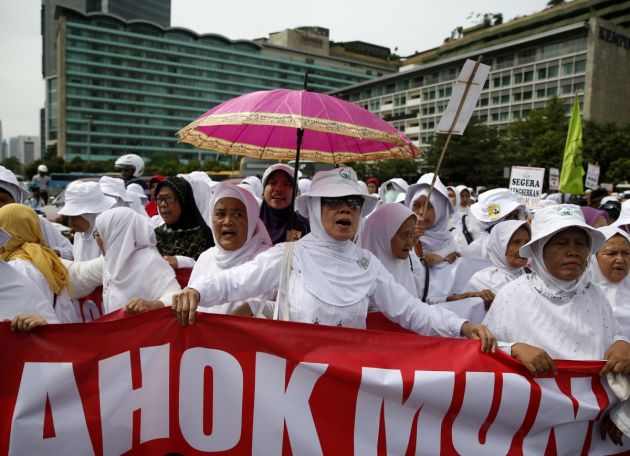Razing of Indonesian churches denounced after sectarian tension flares

As the world's most populous Muslim nation, Indonesia has long boasted its religious tolerance, but sectarian tension is flaring in its Aceh province following attacks on Christians and the tearing down of their churhes.
The tearing down of buildings Christians use as churches this week has dented that image of Indonesia as a country of religious tolerance.
The geneva-based World Council of Churches said on Oct. 21 it deplores attacks on Indonesian churches and Christian communities.
"The recent attacks on churches and Christian communities are deplorable," the WCC's general secretary, Rev. Olav Fykse Tveit wrote to Indonesian church leaders.
"They illustrate the challenges and struggles of Christians in Indonesia, particularly in Aceh Singkil, as they strive to be faithful witnesses to the gospel of Jesus Christ.
"The World Council of Churches condemns all such violence against people and communities on the basis of their religious identity and calls upon the government of Indonesia to act swiftly in bringing the perpetrators to justice."
Aceh is its only Indonesia province that applies Islamic Sharia law due to autonomy it was granted under a 2005 peace agreement that ended decades of separatist violence.
MUSLIM GROUPS DEMAND CLOSURE OF CHURCHES
On Oct. 18 Reuters news agency reported that hardline Muslims in Aceh province demanded the local government close 10 Christian churches, just days after a mob burnt down a church, leaving one person dead and several injured.
Authorities in Indonesia's Aceh province started tearing down illegal churches in a tense district, leaving Catholics in at least three mission stations without a home for religious services, ucanews reported Oct. 21.
The move followed Islamic extremists torching a Protestant church in the area, sending hundreds of Christians fleeing and sparking violent clashes.
In his letter sent Oct. 20 the WCC's Tveit assured Bishop H. Pahala Hutabarat and Rev. Dr Batara Sihombing of the Indonesian Christian Church (HKI) of his profound concern "for the safety of thousands of Christians" who remain in peril.
"I support the statement of the Communion of Churches in Indonesia (PGI) which calls upon the district government of Aceh Singkil to ensure freedom of worship for all religious groups in the district and to stop the demolition of church buildings," wrote Tveit.
Christians make up some 7 per cent of Indonesia's 256 million inhabitants.
From the late 1990s, radical Islamist groups, most prominent among them the Islamic Defenders Front (FPI), began to assert their influence in some provinces, Foreign Policy reports.
The FPI became known for making life difficult for Christians and Muslim minority groups, like Indonesia's small Shia and Ahmadiyya communities, and for acts of low-level religious vigilantism, like smashing up the beer coolers in convenience stores during Ramadan.
Since the "religious harmony" law was passed in 2006 requiring minority religious groups to gather signatures from the local majority group before building houses of worship, the situation in some parts of the archipelago has become more difficult.